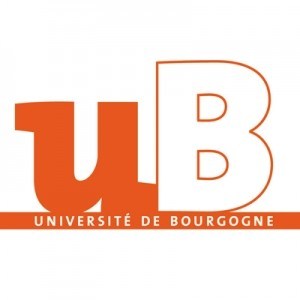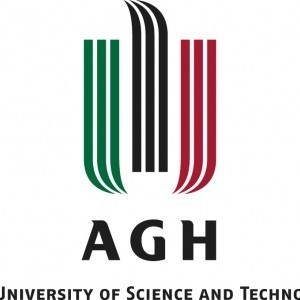Photos of university / #ntnu
The Master’s Programme in Sustainable Urban Transition at the Norwegian University of Science and Technology (NTNU) offers a comprehensive education designed to equip students with the skills and knowledge necessary to address the complex challenges associated with transforming urban areas into sustainable, resilient, and livable environments. This interdisciplinary program combines principles from urban planning, environmental science, engineering, social sciences, and policy development to provide a holistic understanding of sustainable urban development.
Throughout the programme, students will explore key themes such as sustainable mobility, energy efficiency, climate adaptation, circular economy, green infrastructure, and smart city technologies. The curriculum emphasizes practical experience through project-based learning, case studies, and collaboration with local governments, industries, and community organizations. This hands-on approach prepares graduates to implement innovative solutions for urban challenges, from reducing carbon footprints to enhancing quality of life for city residents.
The programme is designed to foster critical thinking, creativity, and leadership skills necessary to drive sustainable change. Students will engage with cutting-edge research and participate in seminars and workshops led by leading experts in the field. The international environment provides opportunities for cultural exchange and networking, enhancing the global relevance of the skills obtained.
Graduates of the Master’s in Sustainable Urban Transition will be well-equipped to pursue careers in urban planning agencies, environmental consultancies, government institutions, international organizations, and research institutions. They will be prepared to influence policy and develop sustainable urban infrastructure, contributing to the global goal of creating resilient and environmentally friendly cities.
The programme is structured over two years, with a mix of coursework, individual and group projects, and a master’s thesis. It is delivered in a manner that balances theory and practice, ensuring students are ready to address real-world urban sustainability challenges upon graduation. By choosing this programme, students will join a dynamic community committed to advancing sustainable urban development and making a positive impact on cities worldwide.
The Master's program in Sustainable Urban Transition at the Norwegian University of Science and Technology (NTNU) is a comprehensive interdisciplinary degree designed to equip students with the knowledge and skills necessary to transform urban environments into sustainable, resilient, and livable communities. This program focuses on addressing the complex challenges faced by modern cities, including rapid urbanization, climate change, resource scarcity, and social inequalities. Throughout the program, students will explore theoretical frameworks, innovative planning methods, and practical approaches to achieve sustainable urban development.
The curriculum encompasses a diverse range of subjects such as urban planning, environmental engineering, transportation systems, renewable energy, and social innovation. Students will engage in case studies and project-based assignments that foster problem-solving abilities and collaborative work. Emphasis is placed on integrating environmental considerations with economic and social factors to develop holistic solutions for urban sustainability. The program also offers specialized courses in smart city technologies, sustainable architecture, and community engagement, preparing students to lead transformative projects in real-world settings.
Students will have the opportunity to participate in internships and international exchanges, gaining valuable practical experience and global perspectives. The program prepares graduates for careers in urban planning agencies, environmental consultancy, policy development, and research institutions, where they can drive policies and initiatives toward sustainable urban transitions. With a strong foundation in both theoretical concepts and practical applications, graduates will be well-equipped to contribute to creating sustainable, innovative, and inclusive urban spaces that meet the needs of present and future generations.
The Norwegian University of Science and Technology (NTNU) offers various funding opportunities for students enrolled in the Sustainable Urban Transition program. For international students, tuition fees are applicable, although there are scholarship options available. NTNU provides merit-based scholarships that are awarded to outstanding applicants based on academic excellence and motivation. These scholarships typically cover partial or full tuition fees and are highly competitive. Additionally, students may qualify for government-sponsored financial aid programs or grants specific to their home country, which can support their studies financially. Norwegian students, on the other hand, benefit from state funding, which often covers tuition costs, but they may need to arrange personal funding for living expenses. The university also collaborates with industry partners and offers internship opportunities that can include stipends or financial support, helping students gain practical experience while earning additional income. Students are encouraged to explore external scholarship programs such as Erasmus Mundus, Nordplus, or other European exchange initiatives if they plan to undertake specific components of their studies abroad or participate in joint degrees. Funding for research projects and thesis work may be available through university grants or external research funding bodies, providing resources for students engaged in research activities. Overall, the financial support landscape at NTNU is designed to facilitate access to quality education, promoting sustainability and urban transition research without undue financial burden. Potential applicants should consult the official NTNU website and respective scholarship portals for detailed eligibility criteria, application procedures, and deadlines to maximize their chances of securing adequate funding for their studies in Sustainable Urban Transition.
The Sustainable Urban Transition program at the Norwegian University of Science and Technology (NTNU) is a comprehensive postgraduate degree designed to prepare students for addressing the complex challenges associated with urban sustainability and transformation. This program focuses on the interdisciplinary nature of urban development, integrating principles from engineering, environmental sciences, social sciences, and economics to develop innovative solutions that promote sustainable cities. Students will explore various aspects of urban transition, including sustainable planning, urban ecology, transportation systems, energy efficiency, and waste management, with a strong emphasis on real-world applications and problem-solving.
The curriculum is structured to provide a solid theoretical foundation coupled with practical experience through project work, case studies, and collaboration with industry partners. Courses often cover topics such as urban climate resilience, smart city technologies, sustainable infrastructure, and governance of urban development processes. The program encourages a proactive approach to tackling climate change impacts in urban areas, promoting the adoption of green technologies, and fostering community engagement to ensure inclusive and equitable urban growth.
Students in the program benefit from NTNU’s strong research environment and its partnerships with public agencies, private sector companies, and international organizations, which facilitate internships, site visits, and collaborative research projects. The program aims to produce graduates who are equipped with the skills to lead sustainable urban transitions, develop innovative strategies, and influence policy decisions related to urban development and environmental sustainability.
Graduates typically pursue careers in urban planning agencies, environmental consultancy firms, municipal governments, non-governmental organizations, and international development agencies. They are prepared to work in roles that require expertise in sustainable design, urban policy, environmental management, and technological innovation.
The program is suitable for students with backgrounds in engineering, architecture, environmental sciences, social sciences, or related fields, and it offers an enriching environment for those passionate about creating sustainable, resilient, and liveable urban spaces. Emphasizing interdisciplinary collaboration and practical problem-solving, the Sustainable Urban Transition program at NTNU is a pathway for future leaders committed to shaping sustainable cities for generations to come.








